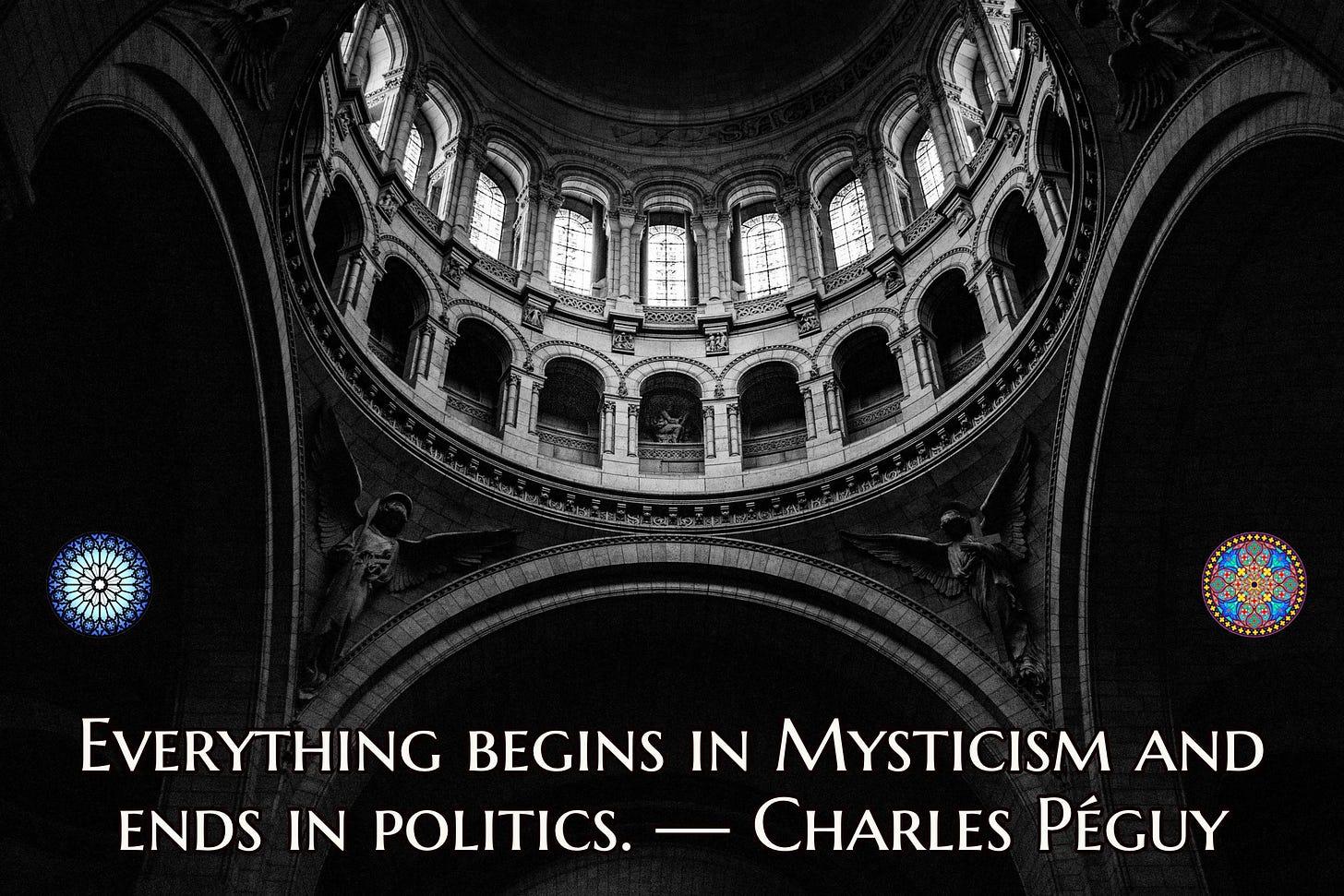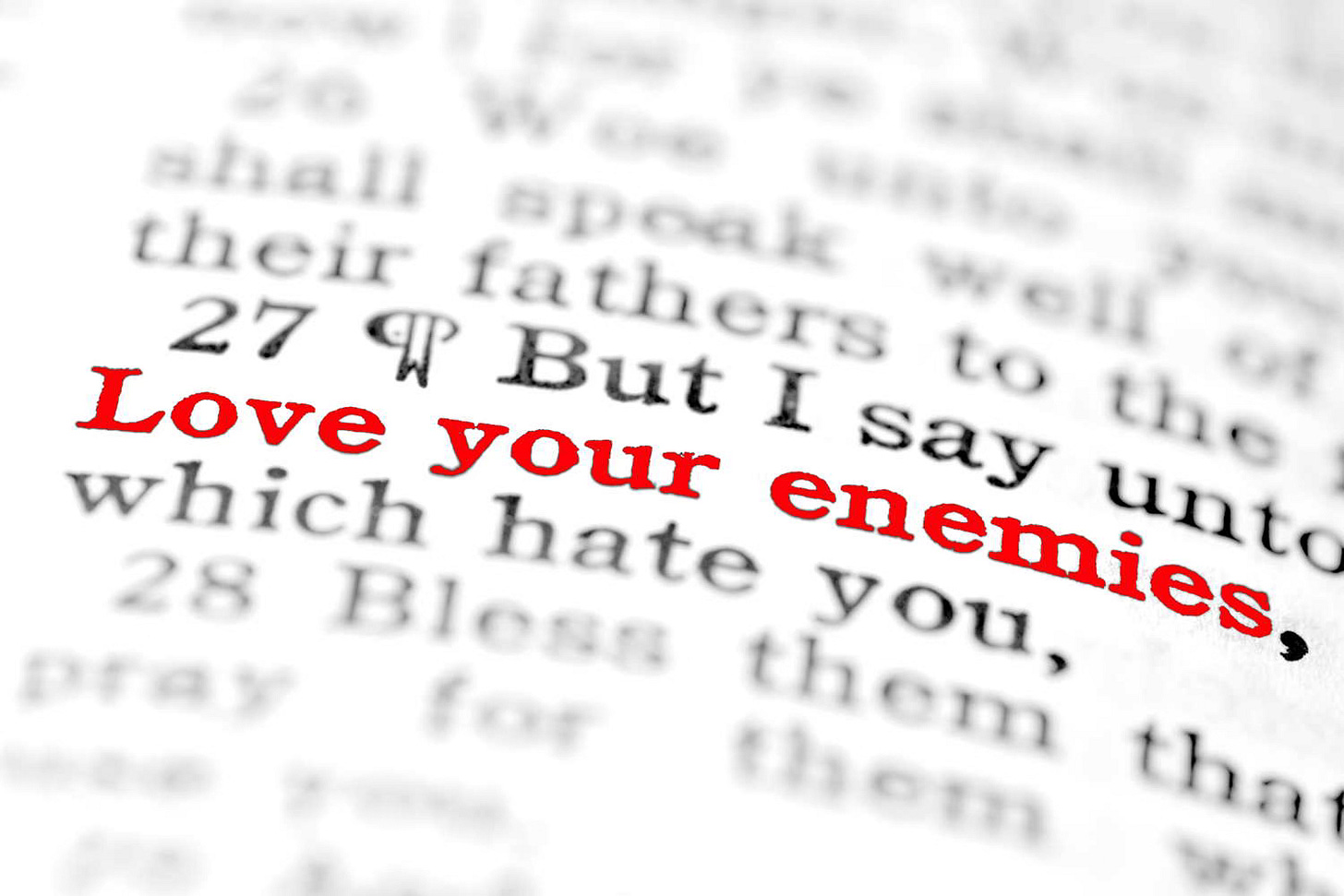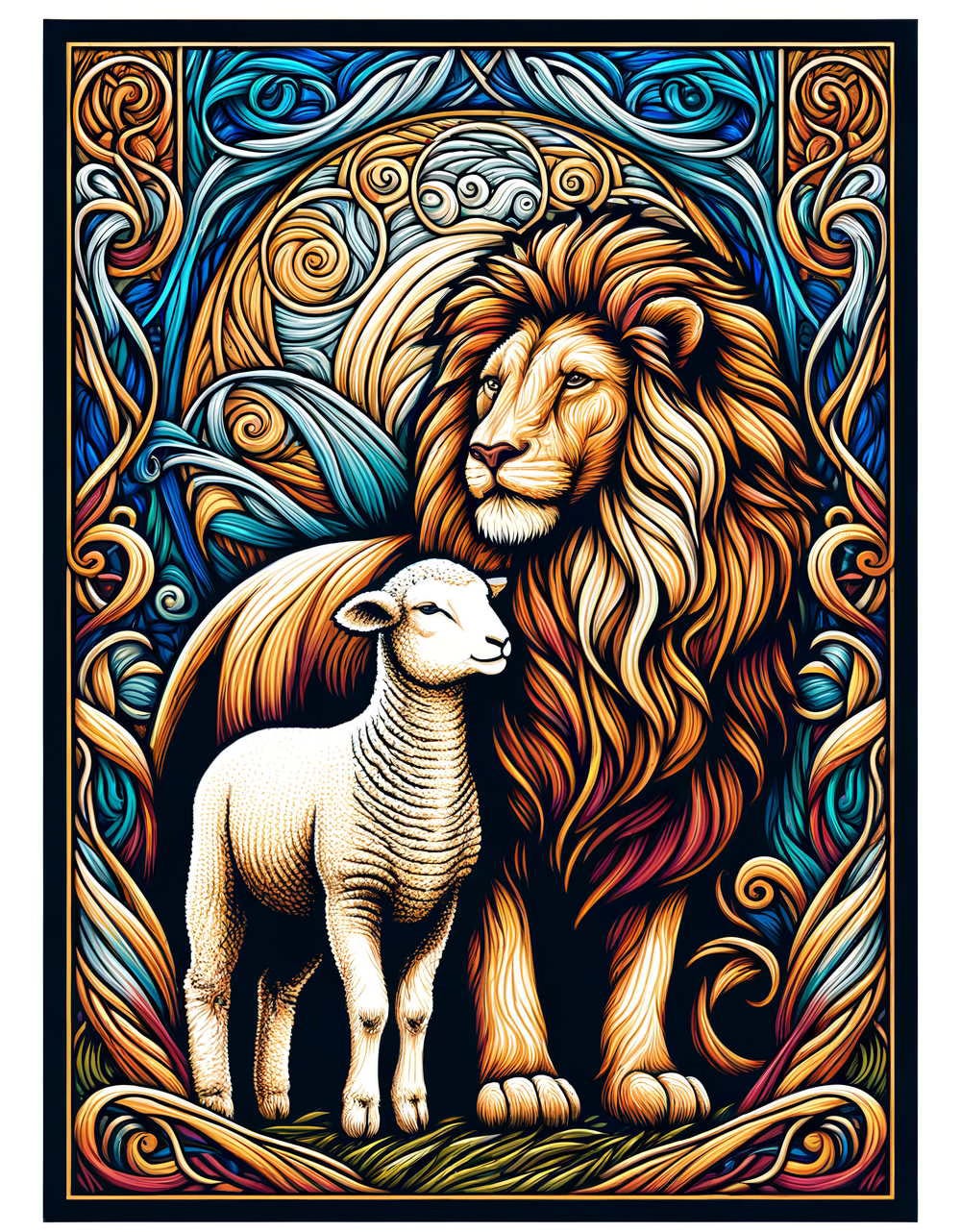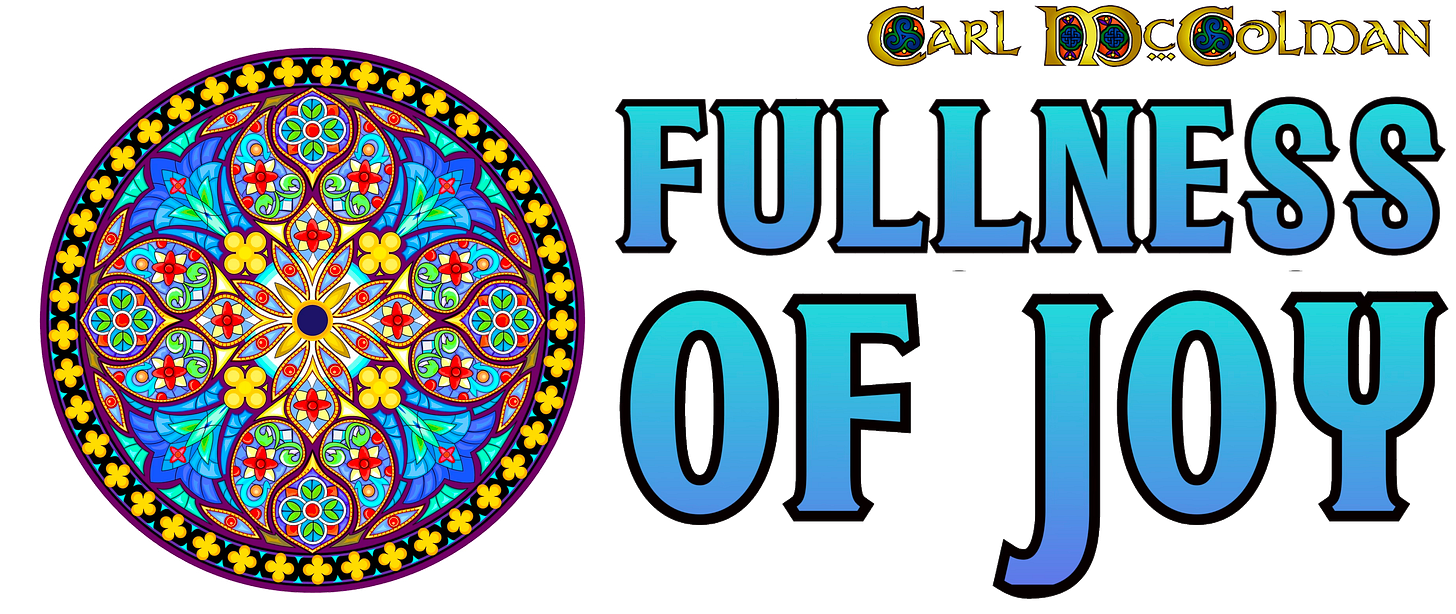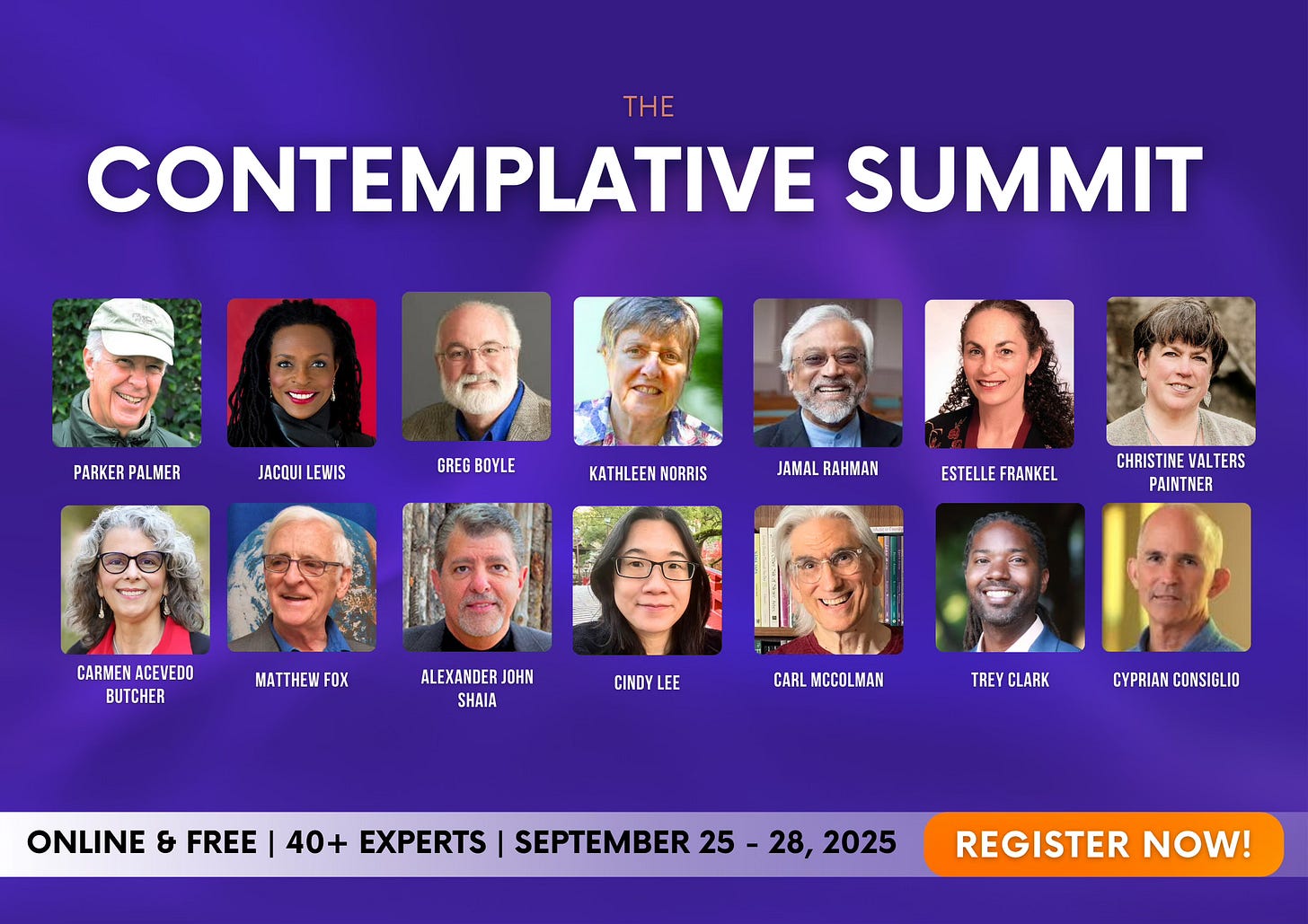Politics, Mysticism, and Writing
A reader criticizes my writing for being "Left Wing." Here are some thoughts in reply.
Everything begins in mysticism and ends in politics. — Charles Péguy
I recently received an email from a reader who offered me some feedback about this Substack publication. It was a long email, so here are just a few of the key points:
I want to express my frustration with this blog … It’s very left wing with an unbalanced trend towards progressive views that are not connected to traditional Christian Mysticism.
There seems to be a lack of self awareness of this concept, despite being called a mystical blog.
Modern Mysticism seems to want to include the vegetarian sheep, but not the carnivorous lion in the all in all that God created. Yet they are all part of the One
I feel like we need to distill mysticism further to let go of all these distinctions and promote an inclusive environment for those that are both traditional and progressive.
I don't think promoting a particular political view is beneficial to achieving unity but it is very pervasive in the modern Contemplative movement.
There’s plenty here for multiple posts in response, but I’ll try to keep things brief for now, trusting that I can unpack some of the complex or nuanced issues over the course of time.
A “Mystical Blog” versus a Mystically-Informed Publication
First, a clarification — I don’t regard Fullness of Joy as a “mystical blog.” My intention for this publication is to be a place where I may write about anything that captures my interest, from religion and spirituality to politics, culture, philosophy, or whatever.
Now, given my long interest in, and study of, both Christian and world mysticism, as well as my ongoing commitment to contemplative practices like Centering Prayer, I certainly intend this newsletter to be informed by mystical spirituality and contemplative practice. Indeed, the tagline for FOJ is “Life through Contemplative Eyes.” That is the heart of this publication.
For example, I’m working right now on future posts about a specific character from J.R.R. Tolkien’s The Lord of the Rings, an appreciation of my favorite book by Thich Nhat Hanh, and a look at the difference between psychedelic therapy and spiritual direction. Each of these topics, I believe, can be enhanced by viewing them through a contemplative lens, but on their own none of these necessarily are “mystical” topics, certainly not in the narrowest sense of the word. Of course, I’ll continue to write about mysticism more specifically — another post I have in the works looks at the difference between mysticism and nihilism. But no matter how much mystical and contemplative spirituality matters to me (and it does matter, a lot), the center of gravity here is broader than a narrow focus on mysticism.
So please don’t think of this as a “mystical blog” — although hopefully it is mystically-informed, a subtle but I believe important distinction.
Why So Much “Left Wing” Rhetoric?
Part of the challenge of public writing is the ever-present question of how much to reveal of one’s personal values, beliefs, and perspectives.
I have written in the past about how I don’t like being labeled a “progressive” Christian, and so today I find myself chafing against being called “left-wing” for probably the same reasons. But I also have to acknowledge that my values tend to be pretty consistent with values that, in the popular mind, are associated with the political left. When I take online quizzes that try to identify one’s political viewpoint, I often score as Green, with Democratic Socialist coming in a close second.
I have friends who are full-throttle communists, so to my mind being Green or even socialist is “center-left.” But how the world looks from your perspective is not necessarily how most people see things, and I understand that to many Americans, especially those who get their news exclusively from sources like Fox News or Breitbart, even a Green or a Democratic Socialist is viewed as a hard leftist. I can’t control what other people think of me, but I can be true to my values as best I can.
So what do I value? As I said above, I believe in participatory democracy, as well as in society’s responsibility to care for its most vulnerable members. I believe a towering issue of our time is the present need to care for the environment and to reverse the impact that our technological and consumerist culture is having on nature. Included in all this is a positive appreciation for science, a recognition that democracy requires public discourse that is shaped by robust debate rather than inflammatory name-calling and insults, and a commitment to dismantling systems of privilege that benefit some people at th expense of others (which means I am anti-racist, pro-feminist, and pro-LGBTQ+ persons).
Once again, this Substack is about more than just mysticism, and since I’m the writer, it naturally reflects my values. I don’t expect everyone to agree with me, but I hope readers will recognize that I write in a spirit of good will toward all — even those who disagree with me. I invite my readers to challenge me and debate with me as long as we keep things civil (which is not easy to do in today’s political climate).
I also can say, conscientiously and in full integrity, that I sincerely believe every political and social value that I hold is fully in keeping with the “red letter” teachings of Jesus and the ethical heart of Christian spirituality. I may be wrong in what I value and believe, but I’m not anti-Christian. On the contrary, I espouse the values I hold precisely because I believe my values are consistent with the best ethical teachings of the Christian tradition.
A sad side note: there have been reports of Christian pastors getting push-back from preaching Jesus’s teachings (like the Beatitudes) because members of their congregation, who probably spend more time watching Fox news than they do reading the Bible, insist that such teachings are “too woke” or “too liberal.” Consider this sobering quote from a former official in the Southern Baptist Convention:
Multiple pastors tell me essentially the same story about quoting the Sermon on the Mount parenthetically in their preaching - turn the other cheek - to have someone come up after and to say, where did you get those liberal talking points? And what was alarming to me is that in most of these scenarios, when the pastor would say, I'm literally quoting Jesus Christ, the response would not be, I apologize. The response would be, yes, but that doesn't work anymore. That's weak. And when we get to the point where the teachings of Jesus himself are seen as subversive to us, then we're in a crisis. — Russell Moore, former Southern Baptist official
Here’s the source: Russell Moore on Evangelical America
Why Don’t I Quote “Conservative” Mystics?
Once again: this Substack is meant to be contemplative-informed, but it is not just about contemplation. So naturally I am going to quote whichever writers (mystical or otherwise) whose words I believe help to illustrate or support that point that I am making.
But I also think we should be careful about labelling Christians of the past (mystic or otherwise) as conservative or liberal, leftist or rightist. I think we can’t really assume that mystics of the past would necessary be “right wing” or “left wing” if they were writing today; we have to remember the people are shaped by their family and community and the prevailing ideas and values of their age, and it’s anachronistic to assume that someone like John of the Cross or Teresa of Ávila or Hildegard of Bingen or Meister Eckhart would automatically conform to whichever political values we hold dearly, if somehow they were transported into the present day. The most we can do is to look at their words and thoughts and values and consider how they can shed light on the challenges of our time. And for what it’s worth, I have quoted all of the above in my work over the years, not just the “liberal” mystics like Howard Thurman or Simone Weil.
Can Mysticism Be Limited to Just One Political Viewpoint?
Even when I speak on behalf of social justice, or of LGBTQ+ rights, or promoting the dismantling of racism and sexism and other forms of privilege, I am not saying that all Christians and all Christian mystics should hold the same political beliefs that I do. I believe a free democracy is better than authoritarian systems of government, whether leftist or rightist in orientation. To believe in democracy and liberty means to understand and accept that competing political views will vie for power in government. That’s how it works. I understand that conservatives and liberals really do have different ways of seeing things, and that we live in a world where some people are more liberal-minded, others more conservative. Because of this, I would agree that Christian mysticism is a spirituality that can, and should, incorporate both conservative and liberal viewpoints.
Once again, if the main purpose of this Substack were just to discuss Christian mysticism, it would be a distraction for me to write about political or cultural concerns. But this is a mystically-informed publication, not a blog just about mysticism.
Is a Truly Inclusive Mysticism Possible?
Just as I believe in democracy, I also love the ideal that mystical spirituality ought to be inclusive, a spirituality that encompasses both progressive and traditional theology, as well as both liberal and conservative politics. For many years in my writing, I tried really hard to avoid saying any thing that I thought would be seen as too partisan, precisely because I wanted to present mysticism in as inclusive a way as possible. I think it’s a wonderful ideal and a beautiful vision to hold, this idea that the Spirit calls everyone into the mystical life, regardless of your political affiliation.
Unfortunately, there’s a real world gap between the ideal and reality. As much as we all may hope for a world where everyone politely gets along, it seems that the world just doesn’t work that way.
Everyone holds values and beliefs that they hold dear — and most of the time, we all sooner or later run into people who not only don’t share our values, but who even regard our values as wrong or misinformed. And we probably have similar reactions to their values and politics: we regard them as wrong, misinformed, and even dangerous. These people are not our enemies, they are our neighbors (and either way, Jesus’s instructions for how we should relate to them are the same).
Shortly after I began my blog (which is now archived at www.anamchara.com), I was surprised and disheartened at how much criticism I received from people who simply don’t like mysticism — people who believed that mysticism is incompatible with Christianity, or dangerous, or whatever. Sadly, most of those self-appointed critics seemed to have no interest in dialogue: they could not care less about what I had to say about the matter. It seems that their minds were made up, I was in the wrong, and it was their job to let me know of the error of my ways.
Many people attacked me because, as they saw it, mysticism is “not in the Bible” (they are wrong, and I wrote Read the Bible Like a Mystic in part to refute that misunderstanding). Others attacked mysticism for being “too Catholic,” as if somehow Catholics (and Catholic-friendly writers) have no right to speak. And of course, the most withering criticism was aimed at my interest in Buddhism and other non-Christian spiritualities: if mysticism is interfaith-friendly, then to some Christians it’s just plain bad.
As I said, I soon learned that most of these folks were not interested in dialogue: they just wanted or needed to feel better about themselves by telling me how wrong I was.
Which brings me to my last response to the reader who wrote to me the email I quoted above. Once again:
Modern Mysticism seems to want to include the vegetarian sheep, but not the carnivorous lion in the all in all that God created. Yet they are all part of the One.
“The lion shall lie down with the lamb” is one of the most iconic images of peace inspired by the Bible, although the source verse actually has a wolf getting cozy with the lamb. Here’s the passage, from Isaiah 11:6-7:
6 The wolf shall live with the lamb,
the leopard shall lie down with the kid,
the calf and the lion and the fatling together,
and a little child shall lead them.
The first principle of Bible interpretation is always read a verse in its context. And when we go on to read verse seven, we get an interesting bit of additional intel:
7 The cow and the bear shall graze,
their young shall lie down together;
and the lion shall eat straw like the ox.
What happened to that carnivorous lion? It looks like Isaiah’s vision of peace requires the king of beasts to become just as much of a vegan as the calf (or lamb) that it has made peace with!
So when my reader is upset at me (or at contemplative writers in general) because we prefer the vegetarian lamb to the predatory lion, it’s important to remember that peace requires the killers to stop killing. When it comes to lambs and lions, the lions have more power. They are the ones that have to make it clear that they are willing to set that power aside in order for their to be pace.
To translate this into why my writing doesn’t give much airtime to “the lions”: I’m not interested in promoting the views of people who believe that Buddhists are going to hell, or that queer kids are mentally ill, or that the solution to society’s problems is to silence the voices of those who dare to criticize the Trumpian world view. I’m sorry, but these people are like lions who still want to eat the lambs and the calves. If the lions really believe in peace like they say they do, then they need to make a good-faith effort to start eating straw. Until then, I’m going to focus on doing what I can to help make sure the voices of the lambs are heard. The lions have their own platform, they certainly don’t need me to promote their gluttonous ways.
I’ll stop here. I’m sure that my values (political and otherwise) will continue to show up on this Substack publication. If they make you uncomfortable, I hope you’ll consider dialogue rather than just shunning me (or attacking me). For this reason, I so appreciate the person who wrote to me, for his email was polite and more than once he said he was interested in dialogue. The simple act of listening to one another — truly listening, without the reflexive impulse to attack or defend — seems pretty radical in these difficult times. But listening and dialogue are the foundations of a free society and a democratic political process. May we all practice the art of listening and dialogue every chance we get.
Just a reminder: I also publish a Substack called “Mystical Journey” which features shorter, more devotional writings. Please subscribe if you haven’t already.
Be sure to sign up for the 2025 Contemplative Summit! Paid options available, but you can register for free and connect not only with me but with many other amazing contemplative speakers and teachers! Follow this link to register: https://school.spiritualwanderlust.org/a/2148152474/nYbfKp4J



